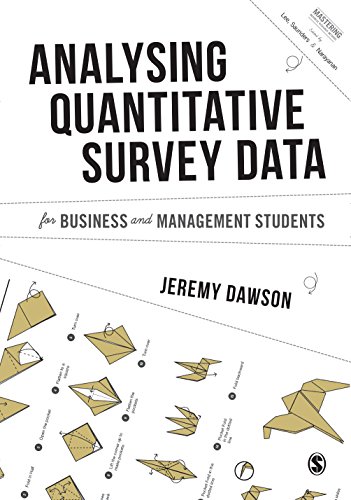Analysing Quantitative Survey Data for Business and Management Students
Jeremy Dawson is professor of Health Management at the University of Sheffield, where he works jointly with the Institute of Work Psychology (part of the Management School) and the School of Health and Related Research (ScHARR). His research includes a range of topics in the areas of health services management, and research methodology. He has led several large-scale projects in the National Health Service (NHS), particularly focusing on team working, staff engagement and well-being, and their links with patient outcomes, and he led the team that ran the NHS national staff survey between 2003 and 2010. Among his other research interests include team and organizational climate, and work group diversity. He is a statistician by background and teaches a wide variety of subjects in the fields of statistics and research methods, as well as researching in these areas. He has published more than 40 papers in refereed academic journals, as well as numerous project reports and articles in practitioner publications. He is an editorial board member of six journals and an associate editor of the Journal of Occupational and Organizational Psychology. He gained his PhD from Aston University in 2011. ... Read more Read less
In Analysing Quantitative Survey Data, Jeremy Dawson introduces you to the key elements of analysing quantitative survey data using classical test theory, the measurement theory that underlies the techniques described in the book. The methodological assumptions, basic components and strengths and limitations of this analysis are explained and with the help of illustrative examples, you are guided through how to conduct the key procedures involved, including reliability analysis, exploratory and confirmatory factor analysis. Ideal for Business and Management students reading for a Master’s degree, each book in the series may also serve as reference books for doctoral students and faculty members interested in the method. Part of SAGE’s Mastering Business Research Methods series, conceived and edited by Bill Lee, Mark N. K. Saunders and Vadake K. Narayanan and designed to support researchers by providing in-depth and practical guidance on using a chosen method of data collection or analysis. ... Read more Read less











